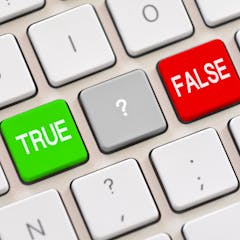
Artikel-artikel mengenai Fact-checking
Menampilkan semua artikel

A new study unexpectedly found a way to help people assess social media posts with less bias and more care – pairing them up with partners who have a different perspective.

Most fact-checking focuses on social media, yet misinformation can also spread quickly through messaging apps like Whatsapp. Personalised push notifications – sent directly to your phone – could help.

Fact-checking is important, but the contents need to be more visual to be able to attract more public audiences.

South Africa has no comprehensive national media literacy programme. Often it comes down to individual teachers and schools to make learners more media literate.

Our study found high levels of trust in media reports – but that trust can be eroded by fact-checking. Journalists need to rethink the way they report political stories.

Footage claiming to document the situation in Ukraine may not necessarily be genuine. Here’s how to treat viral footage with the right level of scepticism before sharing it on social media.

At a time when it’s increasingly difficult to separate truth from falsehood, Wikipedia is an accessible tool for fact-checking and fighting misinformation.

Delivering media literacy in a comics format can help readers develop the skills to identify fake news and counter its effects.

Because dramatic tension fuels attention, Trump’s words work to generate tension, anxiety and conflict. We need to react with civility, care and calm to undo the cycle of attention and persuasion.

‘They might be a liar but at least they’re honest.’

The effective teaching of news literacy needs to go beyond simple fact-checking, a journalism professor argues.

This is the age we live in, and it is crucial that fact-checkers be in place to help media consumers guard against falsehoods.

Olivia Colman has a funny story to tell on Wikipedia about the age displayed in her biography in the online encyclopedia. The opportunity for a Wikipedia fact-checking.

Cognitive psychologists know the way our minds work means we not only don’t notice errors and misinformation we know are wrong, we also then remember them as true.

We build in extra checks and balances, including blind peer review by a second academic expert, additional scrutiny and editorial oversight.

There is a lot of evidence showing that changing people’s drinking hours and consumption patterns reduces violence and hospital admissions.

A posse of fact-checkers has been riding the boundary of the federal election. Not happy with the standard of honesty in political discourse, the ABC, this website and PolitiFact.com.au, a localised version…
